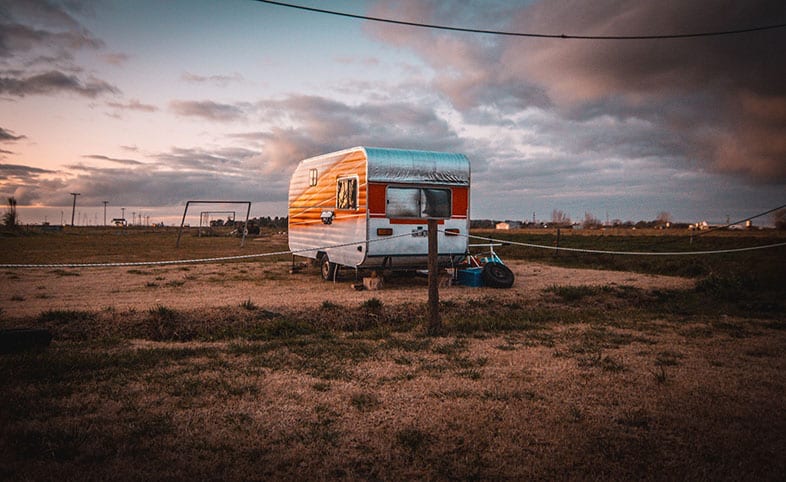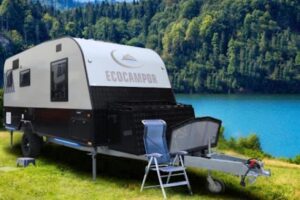In your excitement to escape to the outdoors, you forgot to check if the RV park has electrical hookups available, and as it would turn out…it doesn’t. You’re bummed, your friends are bummed, heck, even the dog looks bummed. It’s going to be a long weekend of drinking lukewarm beer.

Motorhomes and campers are incredibly fun and comfortable vehicles for living and traveling in…as long as they have power. For most people, a large majority of the amenities and conveniences they love in their RV are rendered pretty much useless without a consistent supply of electricity.
For this reason, it’s common practice for folks who own travel trailers to invest in a portable generator for their rig. With a generator on deck, they can ensure the lights stay on, music blasts, and cold beer flows all weekend long.
Important note: While solar panels and wind turbines are considered simple generators, the word “generator” is most often used in reference to an electric generator that produces electrical energy from a liquid fuel source. This is how I will be using the word “generator” for the purposes of this article.
Do Travel Trailers Come Stock With Generators?
Most travel trailers are not manufactured and sold with a built-in generator. The primary reason for this has to do with weight. Travel trailer manufacturers take weight into consideration during every step of the design process. By manufacturing ultra-lightweight, luxury-dense trailers, they can significantly broaden the pool of potential consumers.
It’s easier to sell more trailers if there isn’t a prerequisite of their customers owning a large, powerful truck. A lightweight trailer can be towed by a broader range of vehicles, like hatchbacks and midsize SUVs.
Generators are a dense piece of machinery, and even small, portable models can weigh upwards of 60 pounds. Large, built-in generators can weigh in the 100-115 lb. range. For most manufactures, this kind of weight doesn’t fit within their weight-to-size margins.
Some large fifth wheels are sold with built-in generators because fifth-wheels are already so large that they can afford the extra weight. With or without a generator, the owner will need a powerful truck for towing and transport.
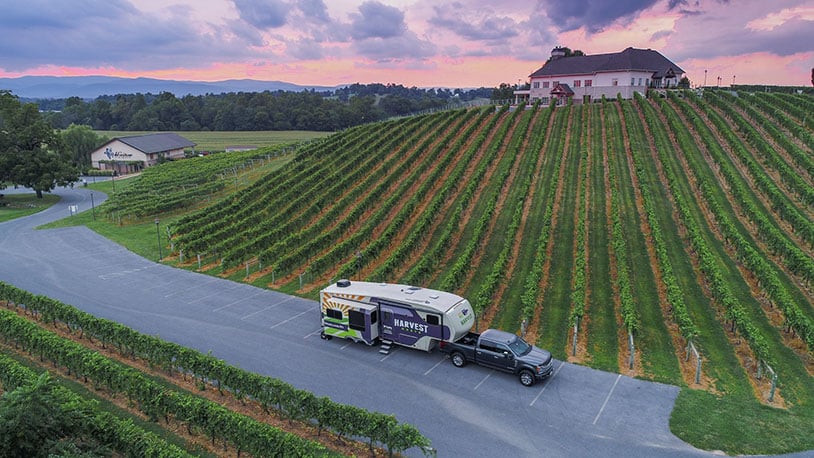
Built-In Options
While not exactly common, it’s not entirely impossible to find a dealership that will sell you a medium-sized travel trailer with an optional generator upgrade. You might have to do some searching around, but if you have your heart set on a trailer with a built-in generator, you should be able to make it happen.
Some trailer owners even take it upon themselves to custom install a generator into their trailer. When these campers go up for sale on the used market, they can be bought as a cheap alternative to buying a new trailer with a generator upgrade.
If you buy a used trailer with an aftermarket generator installed, have the installation inspected by a professional RV technician. Generators are powerful machines that burn fuel and produce harmful gasses. Improperly vented and poorly wired generators have the potential to harm or kill anyone staying within the RV. An RV technician will be able to tell you if the installation was done properly or not.
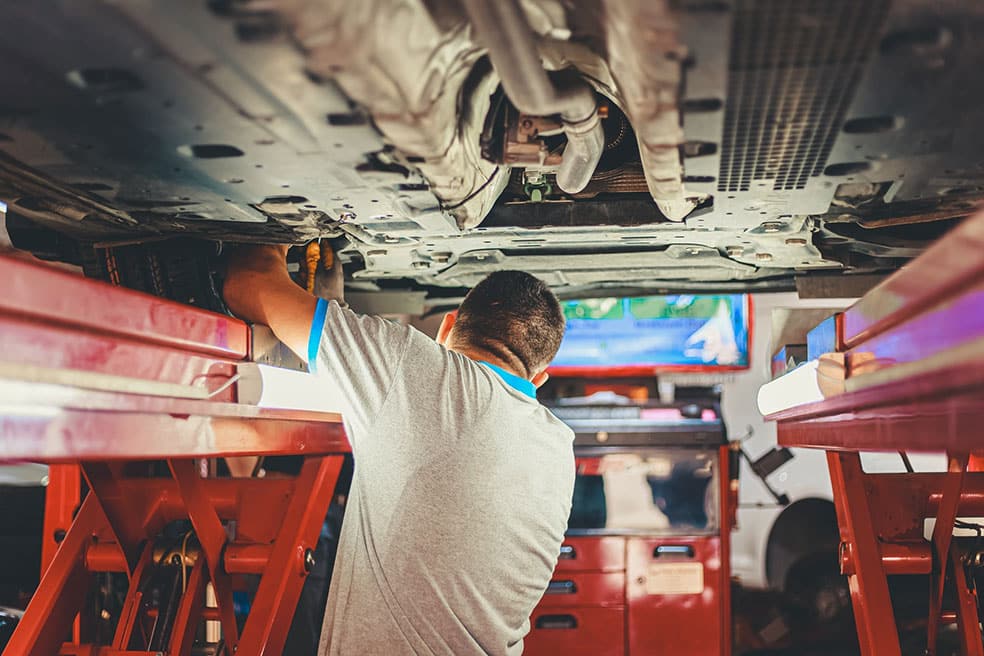
3 Reasons to Buy a Generator For Your Trailer
After buying a travel trailer, be it new or used, it might be hard to consider spending even more money on additional pieces of equipment. Is it really worth the expense? Will I even use it that often?
Trust me when I say that you absolutely want a generator for your travel trailer. Here’s why.
1. Boondocking
Boondocking is the act of camping in remote locations that have zero facilities. Oftentimes people who are boondocking aren’t even camping in any form of ordained campsite. They simply pull off the side of the highway or backroad that they are traveling on and call that home.
The dispersed camping sites that boondockers frequent have absolutely zero facilities available. No water, no electricity, no trash dump sites. Boondockers have to be entirely self-sufficient in this regard, especially when it comes to providing their RV with electricity.
Enter the RV generator. With a portable generator on hand, boondockers ensure they have a steady supply of power throughout the duration of their stay, regardless of how far from civilization they are. Are you 100 miles deep into Washington’s dense forests and craving a microwaved burrito? No problem. An RV generator will provide all of the 120-volt, AC power necessary to run your fridge, microwave, and a myriad of other appliances.
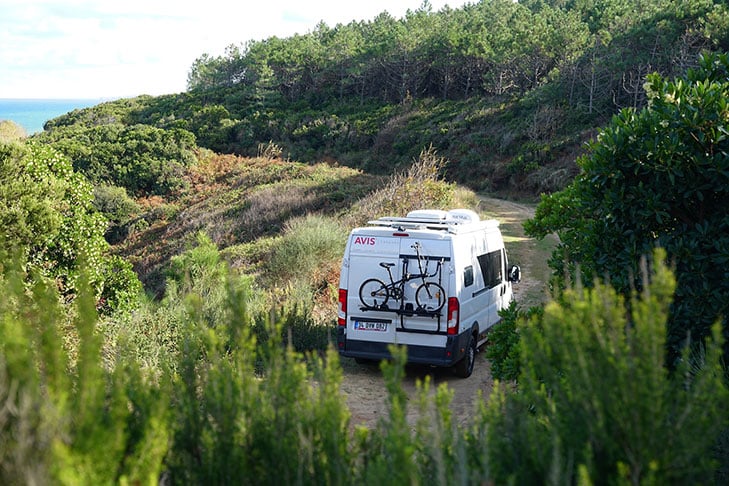
2. RV Parks Without Hookups
As indicated at the beginning of this article, not all RV parks provide access to hookups such as electricity and water. A misconception among new RVers is that all RV parks will provide them with every utility they desire. They assume an RV park reservation comes with water, power, dump stations, bathrooms, you name it. This is definitely not the case.
Many RV parks around the nation do not provide any utilities whatsoever. Or the utilities they do provide come with a serious markup in price. Either way, if you end up at one of these parks, you probably won’t have a shore power connection for the duration of your stay. Luckily, these parks allow the use of RV generators for the purpose of powering your RV and charging RV batteries.
But this doesn’t mean that a portable generator can be run all the time, day and night. Almost all RV parks have very strict quiet hours in regards to RV generators (and loud music and partying). Be exceptionally mindful of these quiet hours while staying at RV parks. RVers are notoriously brutal when it comes to reporting neighbors who ignore quiet hours, and honestly, it’s pretty rude to not be mindful of others’ peace and quiet.
Most RV park quiet times are around the 6am-10pm range. Make sure all of your cooking, cleaning, and charging is done before then so you don’t have to rely too heavily on the RV’s battery bank for power.
3. Backup Power
The beauty of a portable RV generator, compared to a built-in RV generator, is that they go wherever you take them. This means that they do not have to be exclusively used for the purpose of powering your camper.
Do you want to throw a dreamy, late-summer party in the middle of a big field? Your generator is there to power the speakers and as many string lights as your heart desires.
Did you turn grandpa’s creepy barn in the woods into a haunted house for Halloween? Light those effects up with your portable generator!
Has the power at your house gone out during the coldest night of the year? Fire that generator up (not in the house) to keep a couple space heaters running.
Be it planned events or emergency situations, it never hurts to have a backup source of power on hand.
Solar: An Alternative to RV Generators

It’s not strictly necessary to use a traditional electrical generator to provide power to your RV while camping off-grid.
Solar panels are considered power generators as well. Except instead of converting chemical energy into electrical energy, they convert solar energy into usable electrical energy. Solar panels are becoming more efficient and more affordable everyday and that is inspiring many RVers to invest in large solar arrays for their rigs. Similar to a traditional generator, solar panels provide power to an RV that can be used for powering appliances, charging devices, and maintaining a charge on a camper’s battery bank.
Some companies, like the off-road camper manufacturer, now offer campers that have solar panels included in the stock package. With a slick solar array on the roof, their lightweight slide-in truck camper really has unlimited backcountry range.
Portable Solar Generator
As with conventional generators, RVers have the choice to either permanently install solar panels on their rig, or purchase a portable solar generator unit. More than a few companies are manufacturing high-quality, powerful solar generators for use by RVers and outdoor enthusiasts. These units feature several lightweight solar panels and a battery unit with built-in power inverter that allows the unit to supply a 120-volt AC shore power connection to a rig.
A portable solar generator won’t come cheap, but as with all solar technology, the prices are dropping daily.
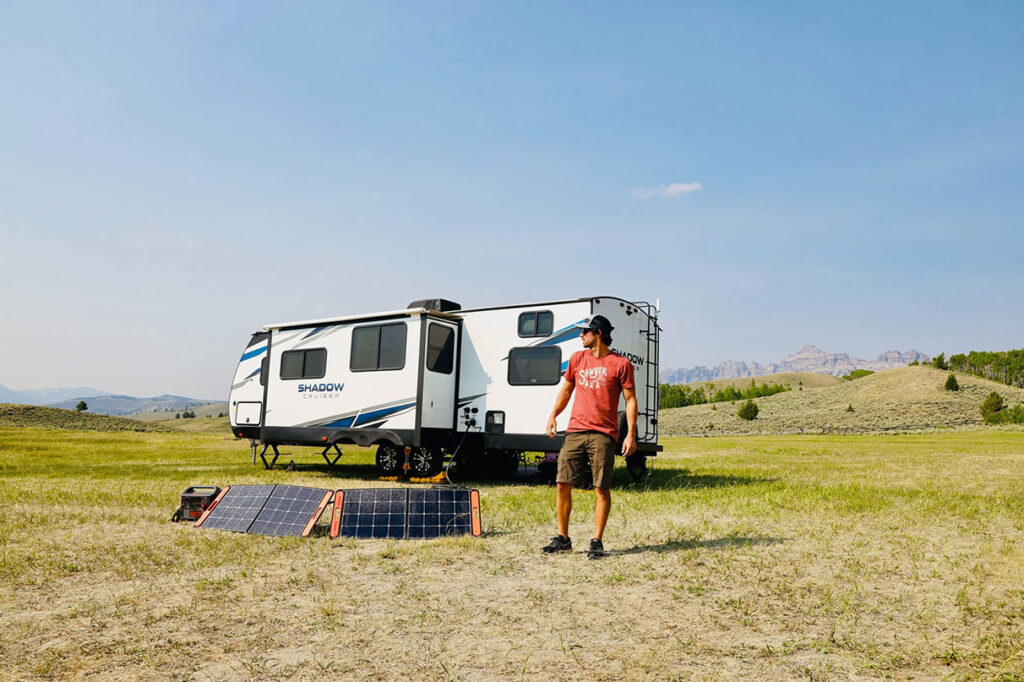
Do I Need a Generator?
Not everyone will absolutely need a generator in order to have a safe and enjoyable experience camping in their travel trailer.
Minimalists
Some folks have very spartan needs out of a travel trailer. These RVers spend almost 100% of their waking hours outside of their camper, and only use the rig to sleep in. They cook outside using propane stoves or campfires, wash dishes by hand in a tub, and only need a headlamp for navigating in the dark or reading before bed. More power to them, right?
If this sounds like your preferred style of camping, you may not need a generator for your trailer.
Solar Enthusiasts
RVers with hefty enough solar systems installed on their rigs have the ability to rely fully on their solar array and battery bank to power their trailer. While it may be expensive to build a system like this (RV batteries are not cheap), many people think it’s worth the cost to strive for independence from fossil fuels.
Small Trailers
Not all trailers are large enough to house very many electronics at all. Teardrop trailers typically feature a couple overhead lights and a USB charger that can be powered by one or two RV batteries. It’s hardly worth it to lug a heavy generator around with so few appliances to power.
Folks with small trailers and low power needs are best served with portable solar generator units.

Frequently Asked Questions
Should I get a generator for my travel trailer?
If you believe that your camping style will benefit from having a generator on hand, definitely pick one up. If you are unsure, hold off on purchasing one until you have a more solid idea of your power needs.
How big of a generator do I need for my travel trailer?
The size of the generator necessary to power an RV is wholly dependent on the size of the trailer, and the power needs of the owner.
Why don’t travel trailers have built-in generators?
Manufacturers prefer to exclude built-in generators in order to keep overall trailer weight down. This broadens the potential customer pool as a wider range of vehicles can tow lightweight trailers.
Be it conventional generators or solar generators, it’s handy to be able to produce power for your trailer while camping. Even the most hardcore of spartan campers enjoy the aesthetic of some nice string lights above the bed.
So if you’re in the market for a travel trailer generator, examine your camping style, assess your power needs, and pull the trigger! You’ll be glad you did.
Happy camping!

